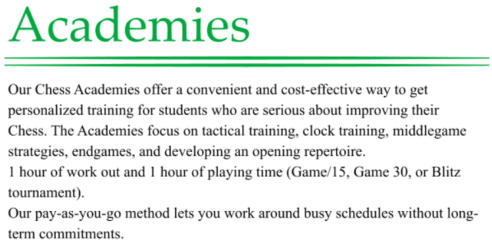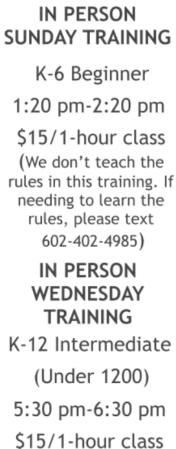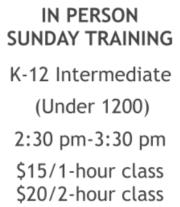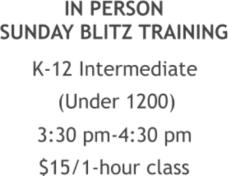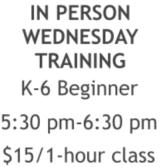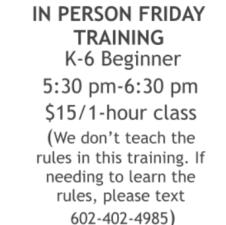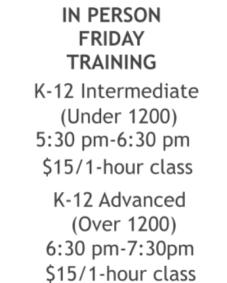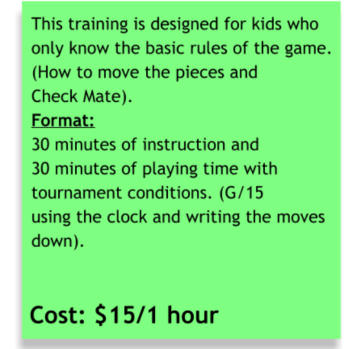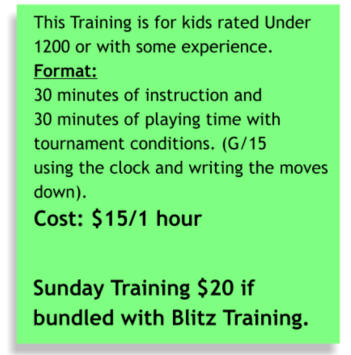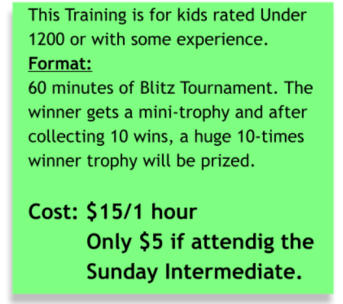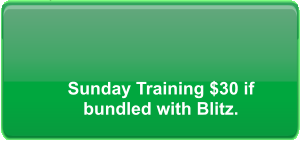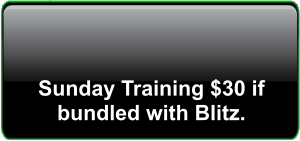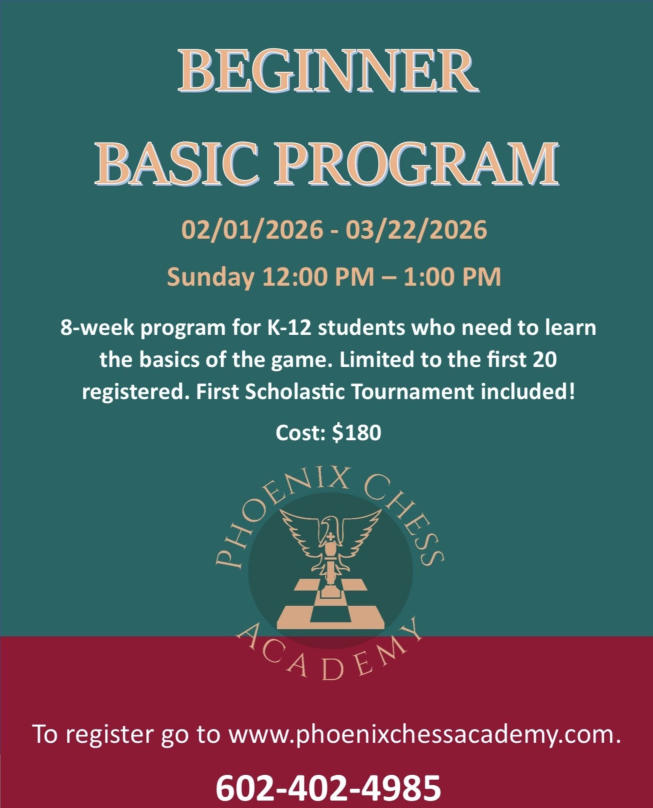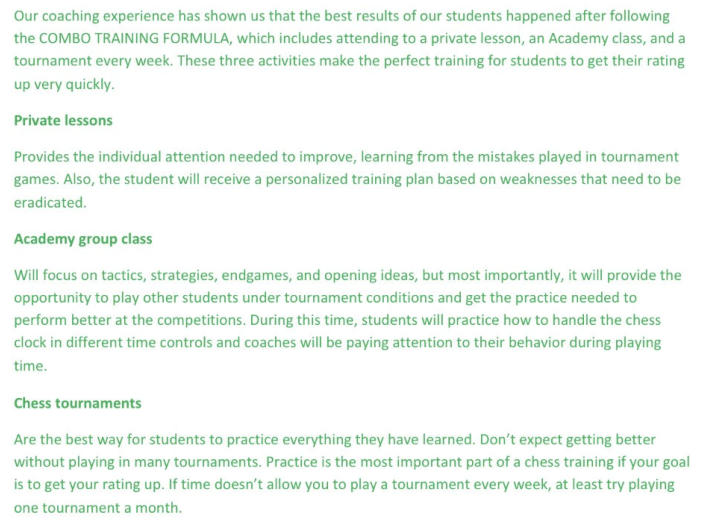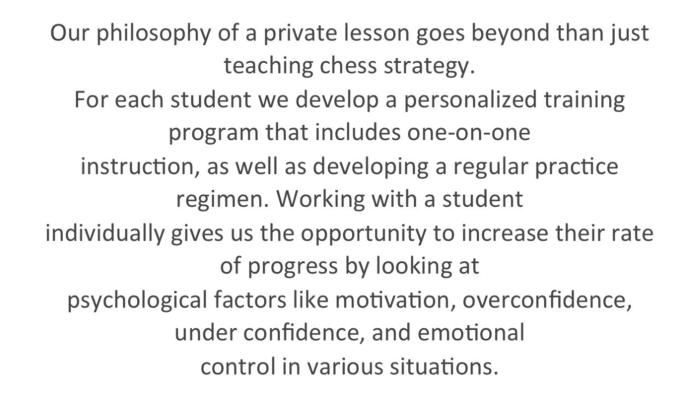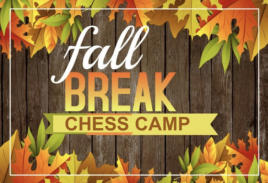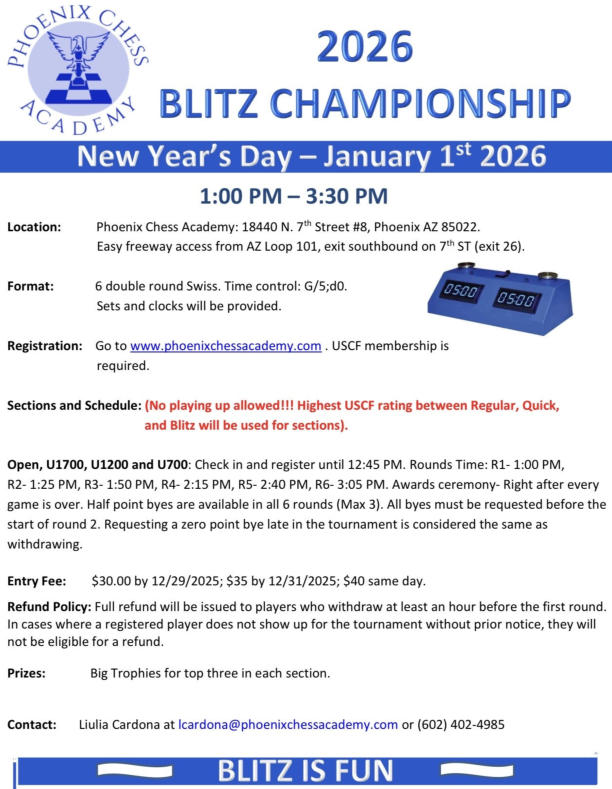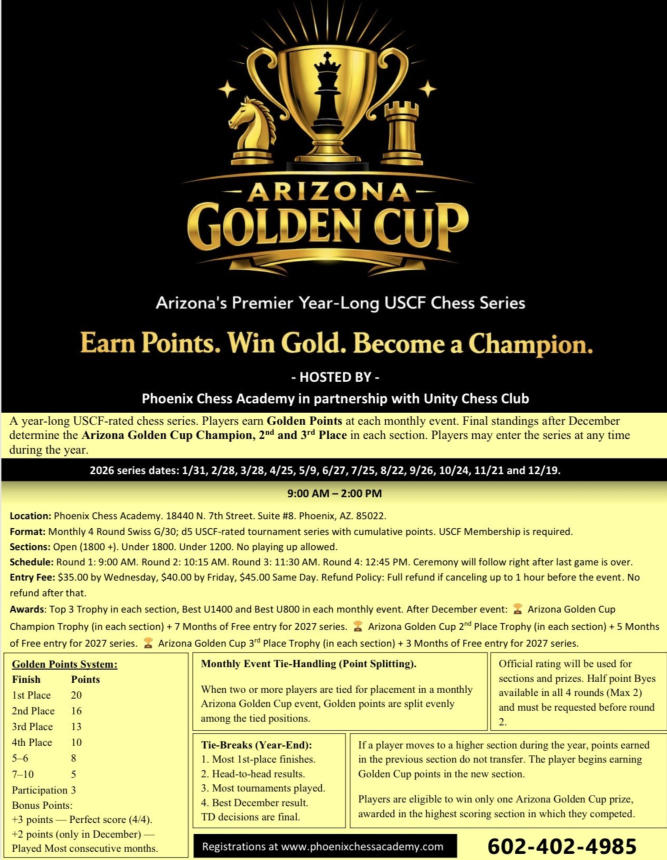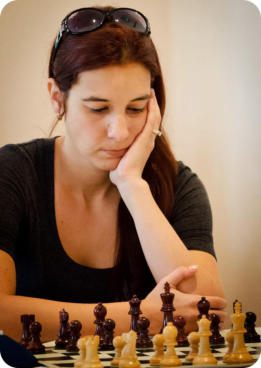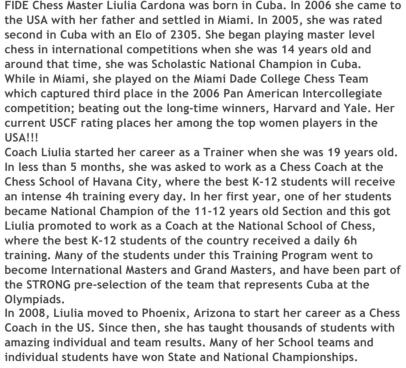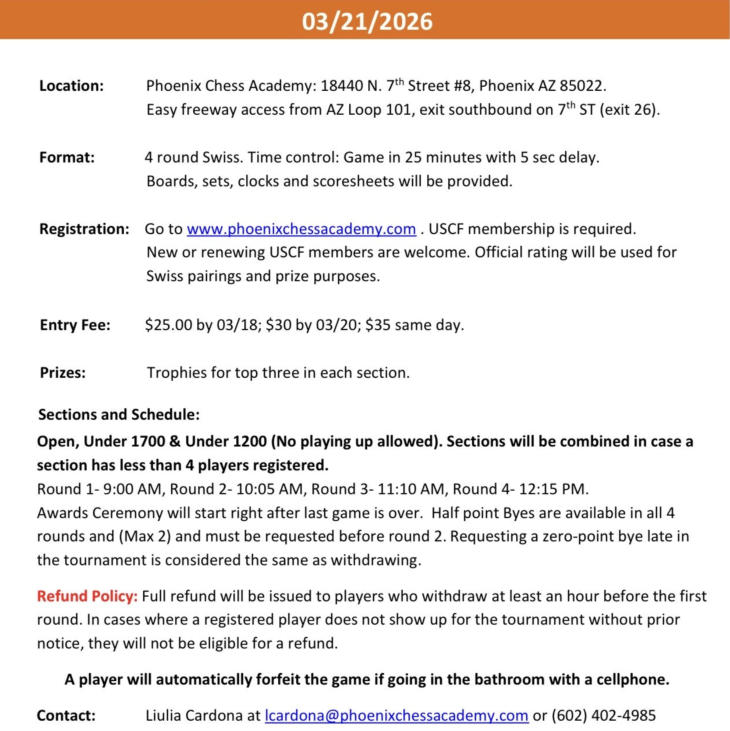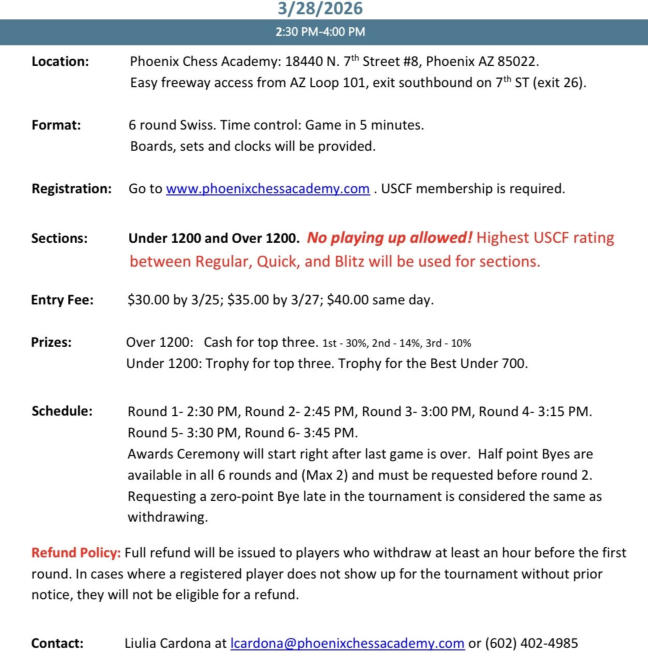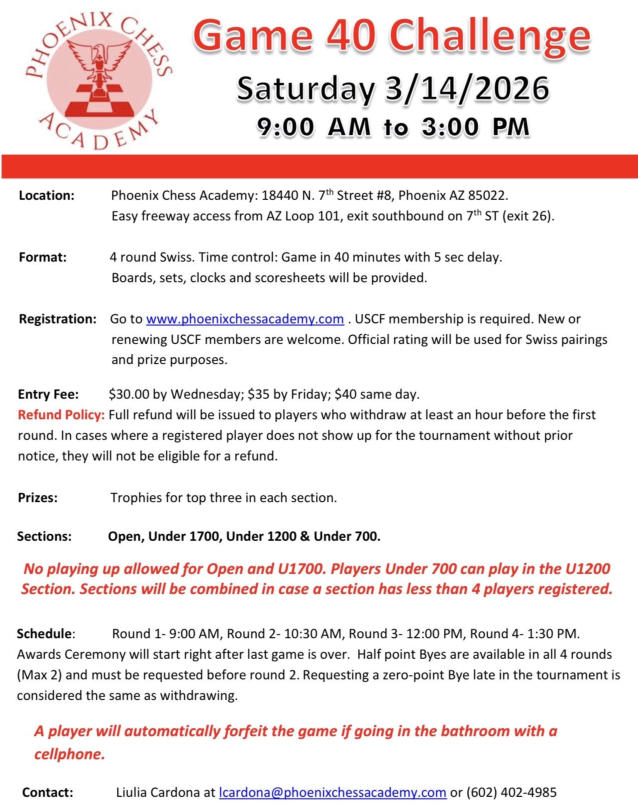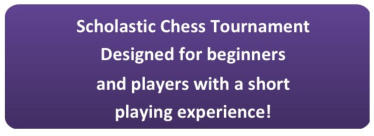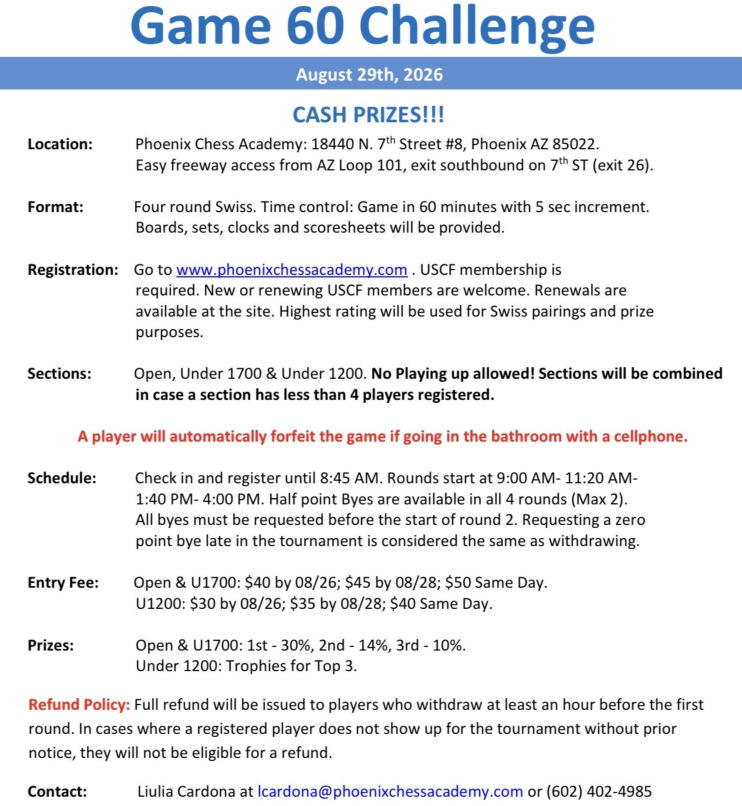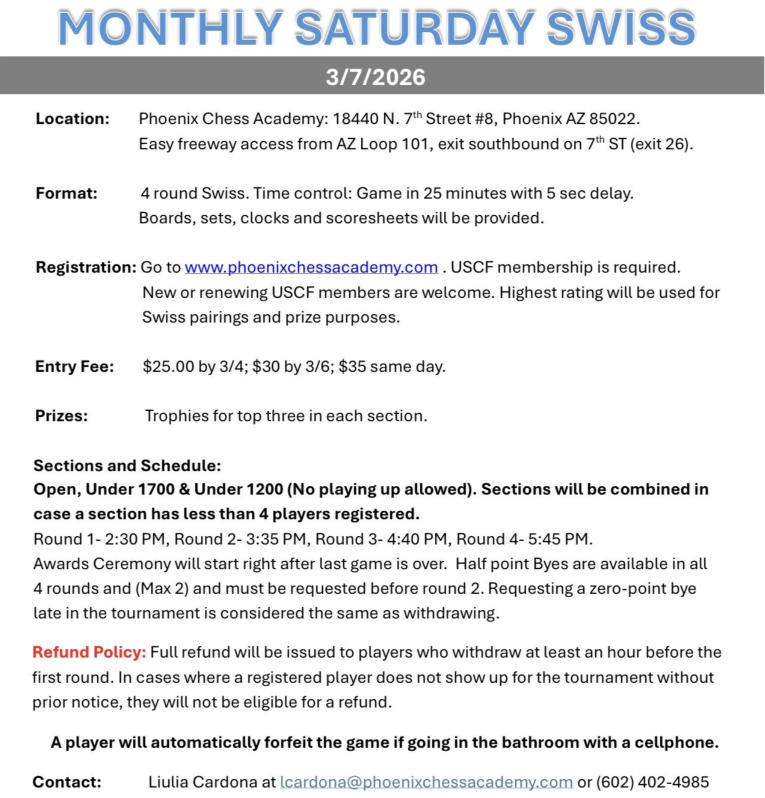18440 N. 7th ST # 8
Phoenix AZ 85022
602-402-4985
Fitness for your Brain

Welcome
PHOENIX CHESS ACADEMY teaches Chess all over the Phoenix Valley in a
fun and educational environment. We teach Private Elementary Schools,
Homeschooling Programs, Advanced Group Lessons, Private Lessons, and
Online Lessons. We work with all ages and all levels, adjusting to each
student’s needs.
In addition to concentration and discipline, trained Chess Players learn to
maximize their strengths and minimize their weaknesses, learn how to
stay focused when they are winning, and how to try even harder when
they are losing. They learn to play every move, yet keep their mind open
to creative solutions. Chess builds confidence because playing Chess
really makes you smarter.
And best of all, the more you learn about Chess the more you can
appreciate the beauty and wonder of a well played-game, and you’ll
understand why Chess is enjoyed by over a billion people, and has been
the world’s most popular game for more than a thousand years.
Our Philosophy
We became Chess Instructors not only because we love the game, but
because we believe that Chess greatly improved our lives. The discipline
of Chess gave us focus and self-confidence that led to success in all areas
of our lives.
We believe that Chess instruction benefits students of all ages and
experience levels, so we create an individual training plan for everyone of
our students. Whatever their goals and aspirations are, we think every
student can have their lives enriched with the right Chess Training.
Questions: Email Coach Liulia: lcardona@phoenixchessacademy.com






















































ARIZONA GOLDEN CUP


GAME 40 CHALLENGE
3/28/2026
3/14/2026
















Phoenix Saturday Blitz
3/28/2026

























































